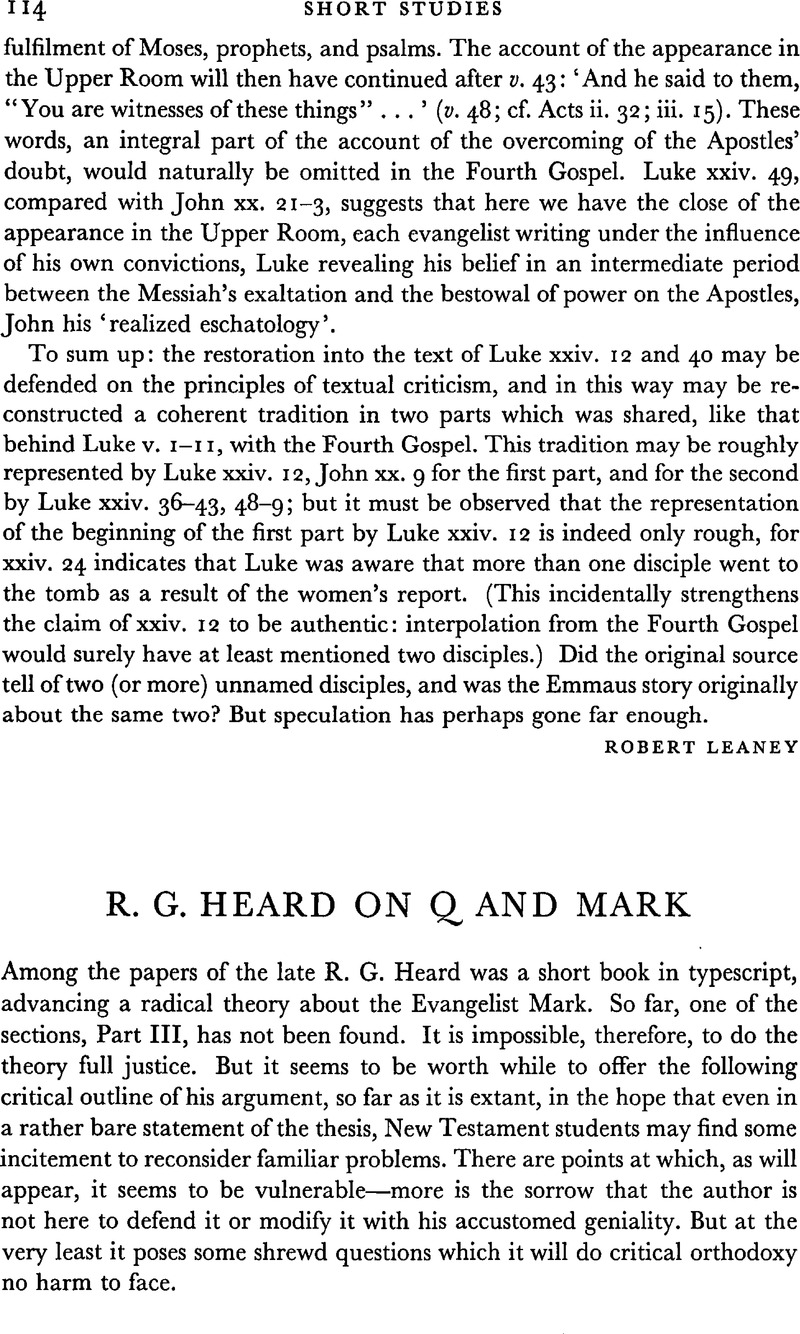No CrossRef data available.
Article contents
R. G. Heard on Q and Mark
Published online by Cambridge University Press: 05 February 2009
Abstract

- Type
- Short Studies
- Information
- Copyright
- Copyright © Cambridge University Press 1955
References
1 Cf. ‘The άπομνημονεύματα in Papias, Justin, and Irenaeus’, posthumously published in New Testament Studies, vol. 1, no. 2, pp. 122 ff.
1 Here Heard is reviving a theory condemned in the strongest terms by Westcott (The Canon, pp. 74f.). But his account of how the tradition of Marcan authorship arose remains worthy of consideration. Cf. the article cited above, p. 115 n. I.
2 Heard discusses the problems attaching to the passage in Trypho. But in any case, is there any reason to assume that merely because the incident alluded to by Justin occurs only in our Mark, it was by Justin's time already attributed to Mark?
3 The Four Gospels, pp. 286, 292.Google Scholar
4 The Sayings of Jesus, p. 228.Google Scholar
1 Note that, whereas Heard holds (with the Proto-Luke theory) that Luke does not conflate Q with Mark, Creed's St Luke makes out a case to the contrary, in regard to Luke's account of the Baptism (pp. lviii, 47) and his introduction to the Temptation narrative (p. 61).


